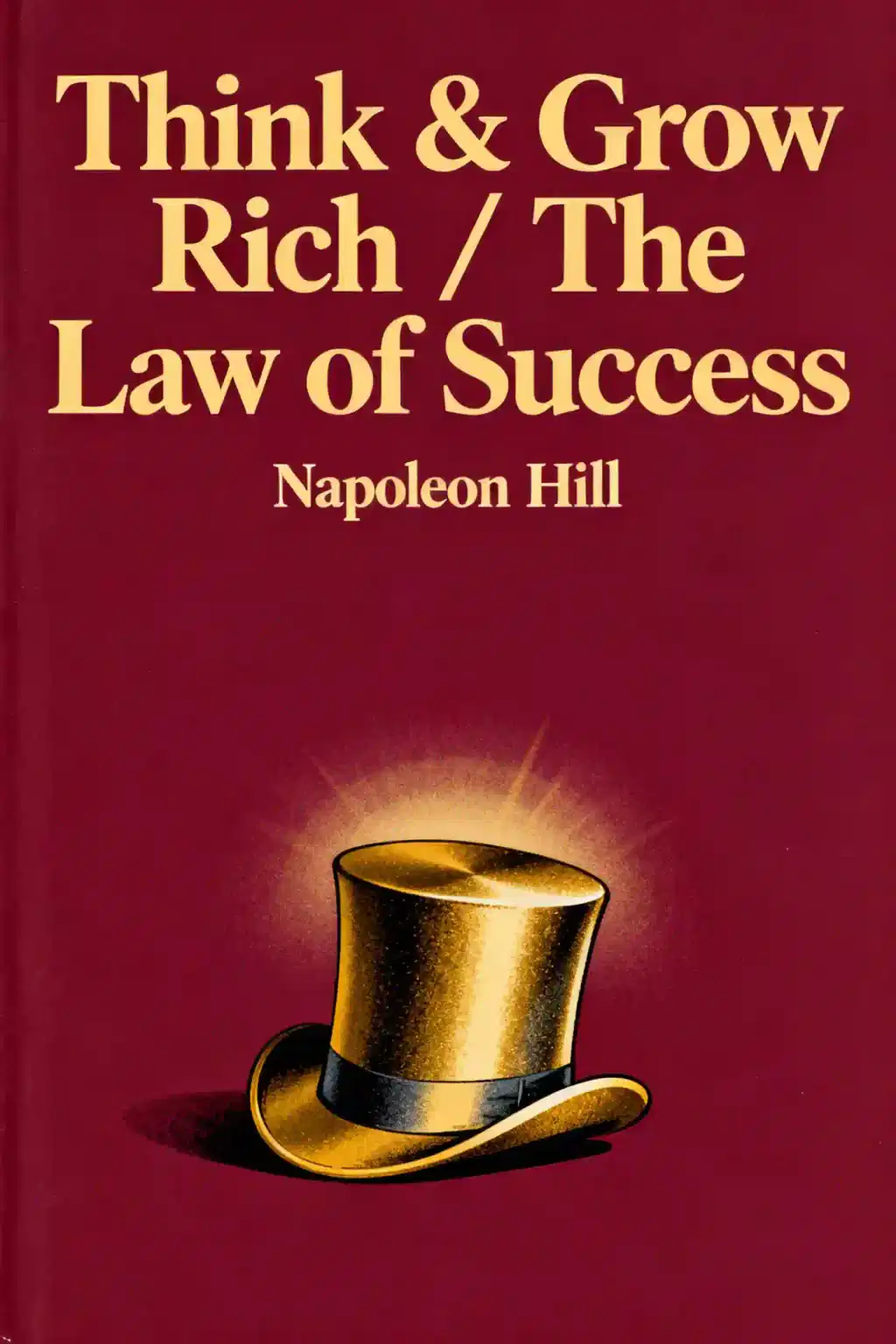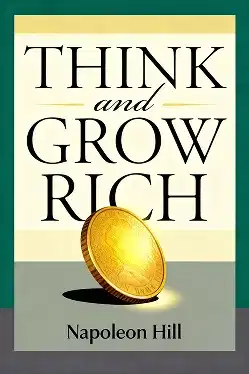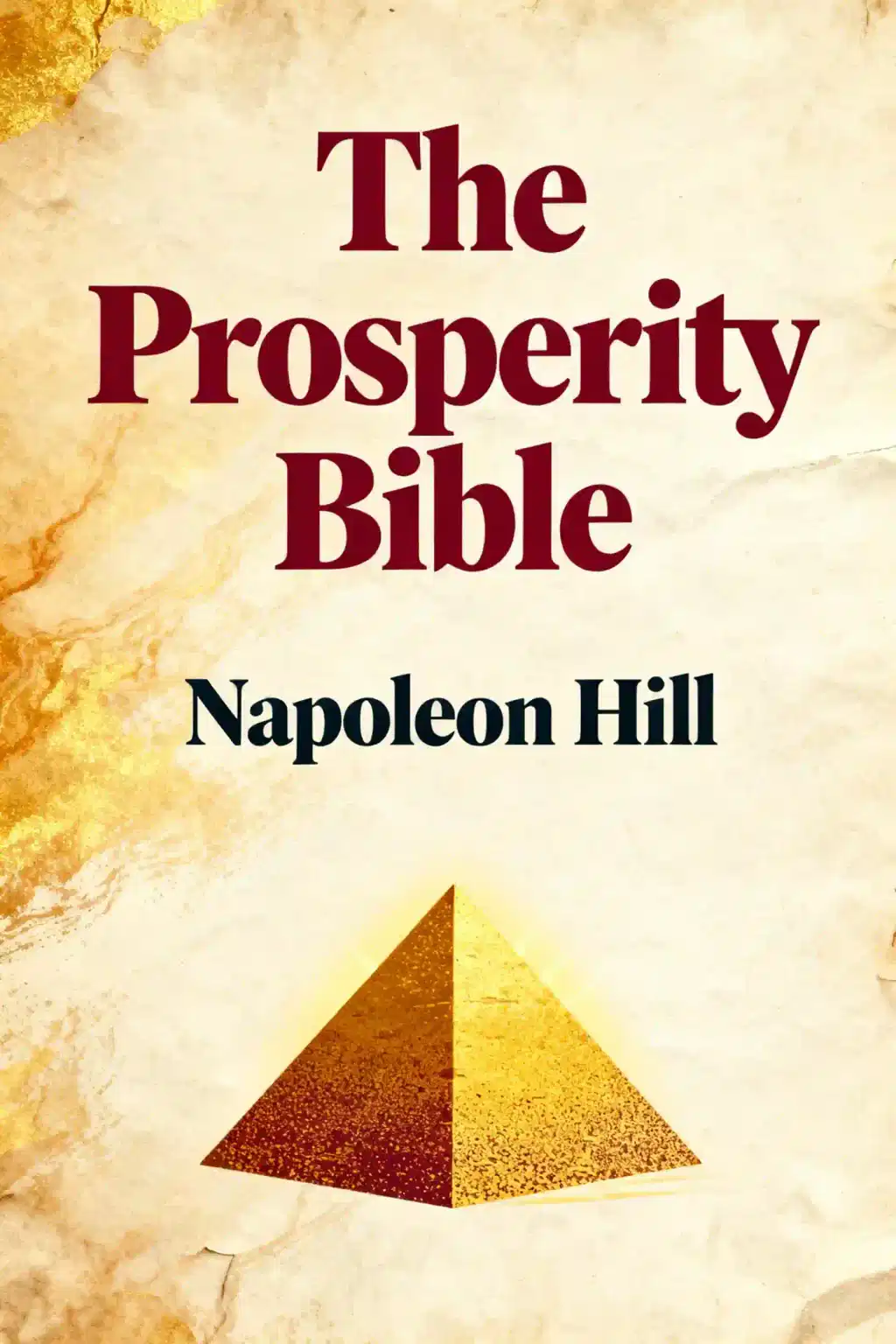What is Think and Grow Rich by Napoleon Hill about?
Think and Grow Rich by Napoleon Hill is a self-help classic that outlines 13 principles for achieving wealth and success. Based on over 20 years of research studying successful individuals like Thomas Edison, Henry Ford, and Andrew Carnegie, the book teaches that anyone can achieve financial and personal success by developing the right mindset, setting clear goals, and taking persistent action. The core message emphasizes that thoughts shape reality and that desire, faith, and specialized knowledge are essential for transforming ambitions into tangible results.
Who should read Think and Grow Rich by Napoleon Hill?
Think and Grow Rich appeals to entrepreneurs, business professionals, students, and anyone seeking personal and financial improvement. The book is particularly valuable for individuals who feel stuck or uncertain about their potential and want to develop the mindset necessary for success. Whether you're pursuing career advancement, starting a business, or seeking emotional and spiritual growth, Napoleon Hill's 13 steps to riches provide actionable guidance. The book is beginner-friendly yet offers depth that benefits experienced personal development enthusiasts.
Is Think and Grow Rich by Napoleon Hill worth reading in 2025?
Think and Grow Rich remains relevant in 2025 because its principles are timeless and applicable to modern challenges. Originally published in 1937, the book has sold millions of copies worldwide and continues to influence readers seeking success. The emphasis on mindset, persistence, and specialized knowledge translates well to contemporary contexts like entrepreneurship, career transitions, and digital business. Unlike trend-based advice, Napoleon Hill's research-backed philosophy focuses on psychological aspects of achievement that transcend time, making it a foundational text for anyone committed to personal transformation.
What are the 13 principles in Think and Grow Rich by Napoleon Hill?
The 13 principles in Think and Grow Rich are: Desire (burning ambition for specific goals), Faith (unwavering self-belief), Autosuggestion (positive self-talk), Specialized Knowledge (niche expertise), Imagination (visualizing success), Organized Planning (detailed action steps), Decision (mastery of procrastination), Persistence (sustained effort), Power of the Master Mind (surrounding yourself with supportive allies), Mystery of Sex Transmutation (channeling energy into achievement), Subconscious Mind (accessing inner power), The Brain (strategic thinking), and The Sixth Sense (trusting intuition). These steps form Napoleon Hill's "Philosophy of Achievement" for transforming desires into reality.
How does autosuggestion work in Think and Grow Rich?
Autosuggestion in Think and Grow Rich is a technique for influencing your subconscious mind through positive self-talk and affirmations. According to Napoleon Hill, you should write a clear statement of your financial goal or desire, including the specific amount, deadline, and what you'll give in return, then read it aloud twice daily—upon waking and before sleep. While reading, visualize yourself already possessing the wealth or achievement. This practice trains your subconscious mind to accept your goals as reality, reinforcing belief and aligning your thoughts with action.
What is the Master Mind principle in Think and Grow Rich?
The Master Mind principle in Think and Grow Rich refers to surrounding yourself with like-minded individuals who support and encourage your goals. Napoleon Hill defines it as "the driving force" created when two or more minds work in harmony toward a definite purpose. This alliance provides specialized knowledge, diverse perspectives, and accountability that accelerate success. Hill observed that wealthy individuals like Andrew Carnegie built Master Mind groups with advisors and partners who complemented their skills, demonstrating that collaboration amplifies individual effort and creates synergy impossible to achieve alone.
How can Think and Grow Rich by Napoleon Hill help with career success?
Think and Grow Rich by Napoleon Hill provides a framework for career advancement by emphasizing specialized knowledge, leadership qualities, and organized planning. The book teaches that success requires developing niche expertise, making firm decisions, and persistently working toward clear goals. Hill identifies essential leadership traits including courage, self-control, justice, and the habit of doing more than paid for. By applying the 13 principles—particularly faith, persistence, and the Master Mind concept—professionals can cultivate the mindset and strategic planning skills necessary to overcome career obstacles and achieve their professional ambitions.
What are the 6 practical steps to riches in Think and Grow Rich?
The 6 practical steps to riches in Think and Grow Rich are:
- know exactly what you want (specific amount if money)
- determine what you'll give in return
- set a definite deadline
- create a detailed action plan and begin immediately
- write a clear statement including all these elements
- read this statement aloud twice daily while visualizing already having achieved it
Napoleon Hill emphasizes not waiting for the "perfect time" because it never comes. This formula transforms vague wishes into concrete objectives with accountability mechanisms, making abstract desires tangible and actionable through daily reinforcement.
When was Think and Grow Rich first published and what inspired it?
Think and Grow Rich was first published in 1937 by The Ralston Society after Napoleon Hill spent over 20 years researching successful individuals. The book was inspired by Andrew Carnegie, who challenged Hill to study the habits and principles of wealthy entrepreneurs, including Thomas Edison and Henry Ford. Hill condensed his findings from the earlier work "The Law of Success" into 13 accessible principles. This research-based approach distinguishes the book from typical self-help literature, as it's grounded in real success stories and proven strategies rather than theoretical concepts.
What makes Think and Grow Rich different from other self-help books?
Think and Grow Rich stands apart because it's based on decades of empirical research rather than theory alone. Napoleon Hill interviewed over 500 successful individuals, drawing principles from their actual experiences. The book emphasizes psychological aspects of success—mindset, faith, and subconscious programming—alongside practical action steps. Unlike books offering generic advice, Hill provides specific formulas like the 6-step wealth acquisition process and the self-confidence formula. This blend of mindset transformation and actionable strategies, backed by real-world examples from industrial giants, creates a comprehensive success philosophy that's both inspirational and pragmatic.
What are common criticisms of Think and Grow Rich by Napoleon Hill?
While universally acclaimed, Think and Grow Rich faces criticism for its heavy emphasis on positive thinking without adequately addressing systemic barriers to wealth. Some readers find concepts like "sex transmutation" outdated or vague. Critics note that Hill's self-confidence formula lacks clarity on taking the crucial first step, which can leave beginners uncertain about implementation. The book's 1937 context means some examples feel dated, and the writing style can be repetitive. Additionally, skeptics argue the principles oversimplify wealth creation by suggesting mindset alone guarantees success, without fully accounting for luck, privilege, or economic circumstances.
What books are similar to Think and Grow Rich by Napoleon Hill?
Books similar to Think and Grow Rich include:
- "Rich Dad Poor Dad" by Robert Kiyosaki, which focuses on financial literacy and building wealth through assets
- "The Richest Man in Babylon" by George S. Clason, offering timeless money principles through parables
- "The Secret" by Rhonda Byrne, exploring the law of attraction
- "The Law of Success" by Napoleon Hill himself, which is the expanded version containing 16 principles
- "How to Win Friends and Influence People" by Dale Carnegie, covering interpersonal skills for success
These titles share themes of mindset transformation, financial wisdom, and personal empowerment.














